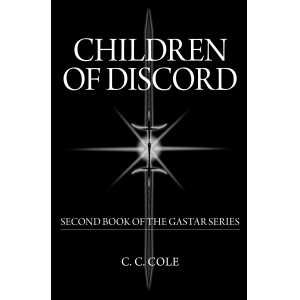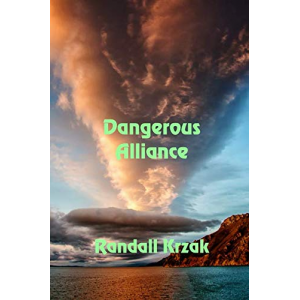- Author
- Book
- Story behind the book
- Media Links
- Reviews

Ayo Akinfe
About
Ayo Akinfe, born in Salford, Manchester, is a London-based journalist who has worked as a magazine and newspaper editor for the last 20 years. Ayo attended Federal Government College Kaduna and obtained his first degree in history from the University of Ibadan. He returned to the UK in 1990 and did his post-graduate studies in journalism at the University of Westminster in London.
Ayo spent his key formative years in Nigeria where he saw the kind of horrors poverty, an unfair trading environment, under-development, corruption and mismanagement visits on African countries. While at the University of Ibadan, Ayo was an official of the National Association of Nigerian Students (Nans)
After working in journalism for 19 years, Ayo decided to switch to book writing after realising that there is simply too little out there on African history. Fuelling the Delta Fires is one of a series of novels aimed at highlighting Africa’s sorry plight and the misleading image peddled about her.
Ayo is also an avid football fan who writes regularly for Nigerian publications such as The Guardian, Vanguard and The Nation. Apart from politics and socio-economic matters, his other great passion is the Super Eagles. He has a Nigerian Village Square column where most of his articles are actually about the Super Eagles.
A big Wilbur Smith fan, Ayo plans to make his series about West Africa similar to what Wilbur has done in southern Africa. Ayo has read all of Wilbur’s 33 novels and believes what has been done there can be replicated in the West African sub-region

A King Under Siege
Description
<p><span style="color:rgb(15,17,17);font-family:'Amazon Ember', Arial, sans-serif;font-size:14px;">Richard II found himself under siege not once, but twice in his minority. Crowned king at age ten, he was only fourteen when the Peasants' Revolt terrorized London. But he proved himself every bit the Plantagenet successor, facing Wat Tyler and the rebels when all seemed lost. Alas, his triumph was short-lived, and for the next ten years he struggled to assert himself against his uncles and increasingly hostile nobles. Just like in the days of his great-grandfather Edward II, vengeful magnates strove to separate him from his friends and advisors, and even threatened to depose him if he refused to do their bidding. The Lords Appellant, as they came to be known, purged the royal household with the help of the Merciless Parliament. They murdered his closest allies, leaving the King alone and defenseless. He would never forget his humiliation at the hands of his subjects. Richard's inability to protect his adherents would haunt him for the rest of his life, and he vowed that next time, retribution would be his.</span><br /><span class="a-text-bold" style="color:rgb(15,17,17);font-family:'Amazon Ember', Arial, sans-serif;font-size:14px;font-weight:700;">B.R.A.G. Medallion honoree!</span></p>
Story Behind The Book
Based on the real life situation in Nigeria’s Niger Delta, Fuelling the Delta Fires is a 134,000-word expose and action adventure novel revealing why there is turmoil in the world’s sixth largest crude oil exporter. Chief Tom-George is a corrupt local politician and the governor of Western Ijaw State. Under Nigeria’s military dictatorship, Chief Tom-George served as Nigeria’s petroleum minister and made tidy sums of money from a combination of kickbacks and outright crude embezzlement. With the transition to democracy and elections looming, Chief Tom-George decides that he wants to be governor of his state and decides to go about building up a support base. To “spread his message” across the state, the Ijaw chief buys the services of Mene Bene, the leader of the largest youth militant group the Niger Delta Liberation Movement (NDLM). In exchange for cash, Bene ensures that Chief Tom-George’s opponents are harassed, that his political rivals are beaten up and threatens communities that refuse to back his man’s National Umbrella Party. However, once he was sworn in as governor, Chief Tom-George no longer needed Bene and the NDLM, so they had a problem. To compound the crisis, the NDLM was getting more militant as with its main source of revenue now cut off, it resorts to kidnapping as a means of raising funds to sustain its operations. What started off as a little bit of mischief, soon grew into a multi-million dollar industry as NDLM found out that oil companies were willing to pay handsome sums for the return of the expatriate workers. Although the Nigerian Army scored several successes in clashes with the militants and eventually arrested Bene, the problem did not stop. All that happened was that the NDLM fractured into local groups, with each controlling its own “territory.” Before long, a class of millionaire kidnappers has emerged. Meanwhile, the poor people of the Niger Delta, never see one penny of all the ransom money that changes hands. Their creeks remain polluted, their villages stay inaccessible and social amenities like electricity and pipe-borne water remained dreams. Chief Tom-George and other Ijaw “elders” milk the crisis in the Niger Delta to the fullest. They get the federal government to increase derivation from oil earnings to 13% from 3% for the Delta’s nine oil-producing states, dramatically increased the quota of appointments they get in the federal government and always have first refusal when the head of a security agency or a government parastatal is up for grabs. This dramatic book and potential blockbuster, also gives a real live account of the experience of Alan Ward, a kidnapped British oil worker. Alan is held on the isolated and desolate delta island of Epeleama, which was originally built by the Portuguese but is now uninhabited. Unlike any other book before, Fuelling the Delta Fires also takes the reader through the travails of Mene Bene, the NDLM leader. It profiles the man, looks at his persona, his childhood and orientation that led to him taking up arms against the government and oil companies. The book also looks at the conflicts of interest he wrestles with as his split loyalty to his political masters, money and his people often pulls him in different directions. Fuelling the Delta Fires ends with Chief Tom-George’s ambitions to run for the presidency of Nigeria in tatters. He is the front runner until at the last minute, the rug is pulled from under his feet when a litany of his corrupt deals are read out to him a day before the ruling party selects its presidential candidate. Faced with the threat of standing down or being indicted, he does the former and watches on helplessly as the prize slips from his grasp.
Media Links
Reviews
<p><span style="font-family:'Times New Roman';">"This novel will make a mark as a political novel that very successfully captures the political Nigeria of the twenty first century. Based on the unending story of the Nigeria delta region's misery, staring poverty, disease, social neglect, total depredation of life and property, environmental destruction by local and international oil barons, and in the face of violence by government and resistance by the so-called militants, this writer craftily presents the flesh and blood of the continued political turmoil. </span> <br /> </p> <p><span style="font-family:'Times New Roman';">The language is sharp and sophisticated, many times untypical of the trademark of post-colonial African novel of traditional anecdotes and oral performative metaphors and images but clearly adequate of the new Nigerian lowness in lack of regard for its people and its high-rate cultural and traditional humanistic values. </span> <br /> </p> <p><span style="font-family:'Times New Roman';">This novel exposes the true cause of the ongoing Delta violence and the continued political turmoil in Nigeria." </span></p><span style="font-family:'Times New Roman';">- Damola Ifaturoti, editorial co-ordinator, Africa World Press/The Red Sea Press <br /></span>






